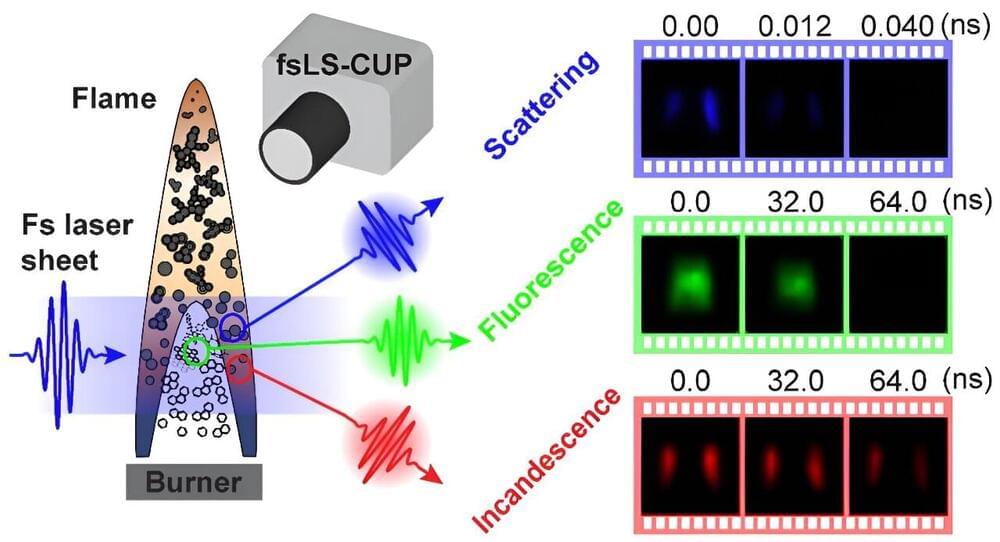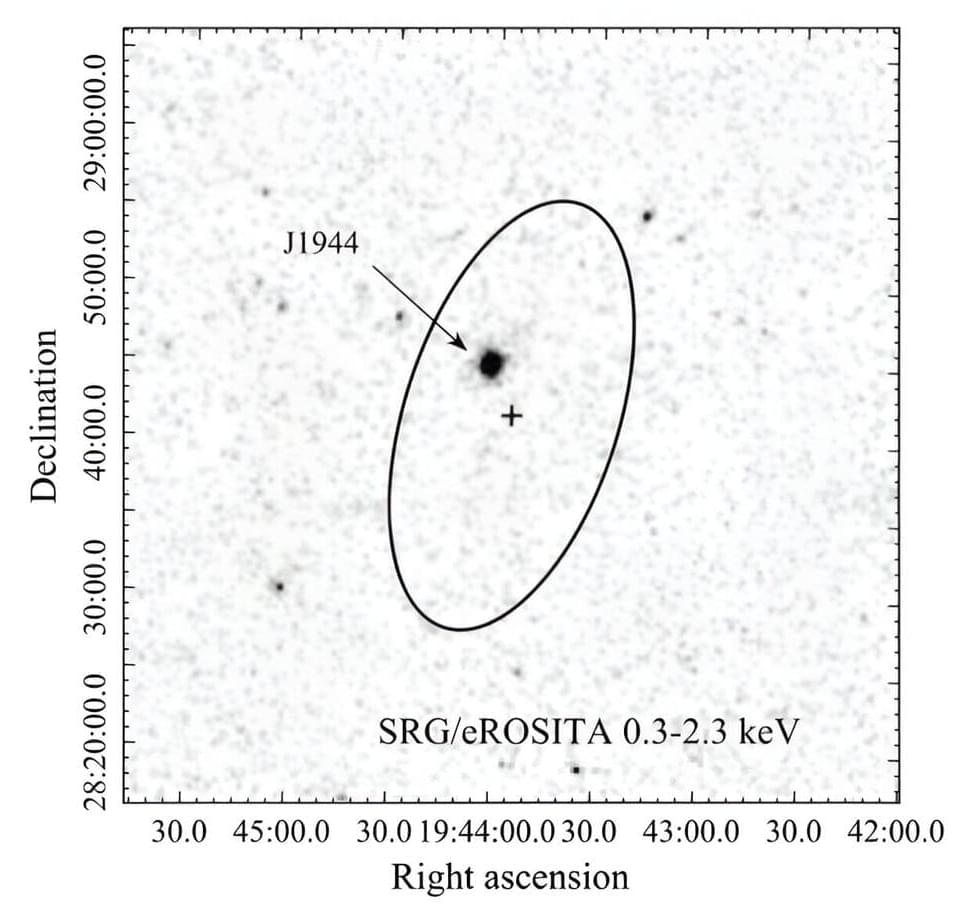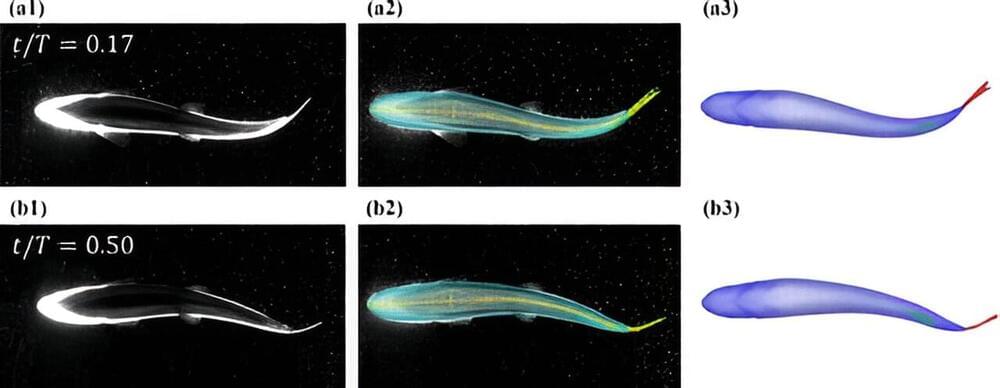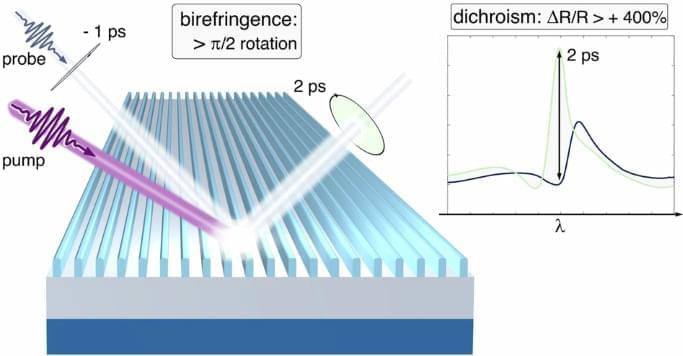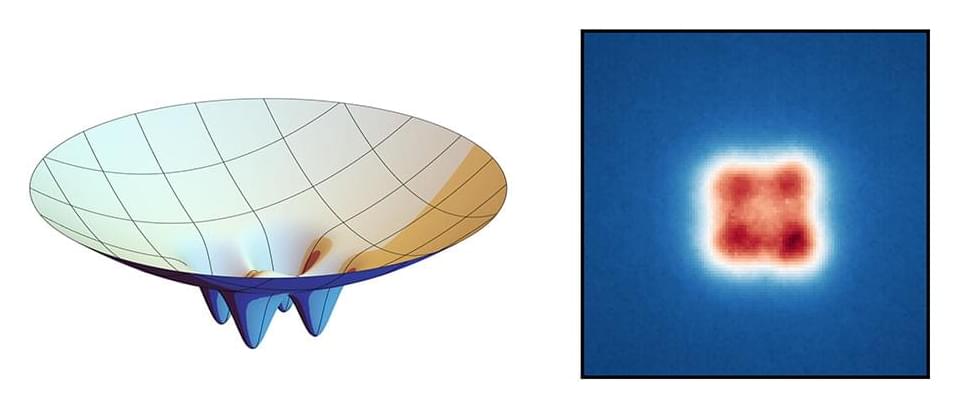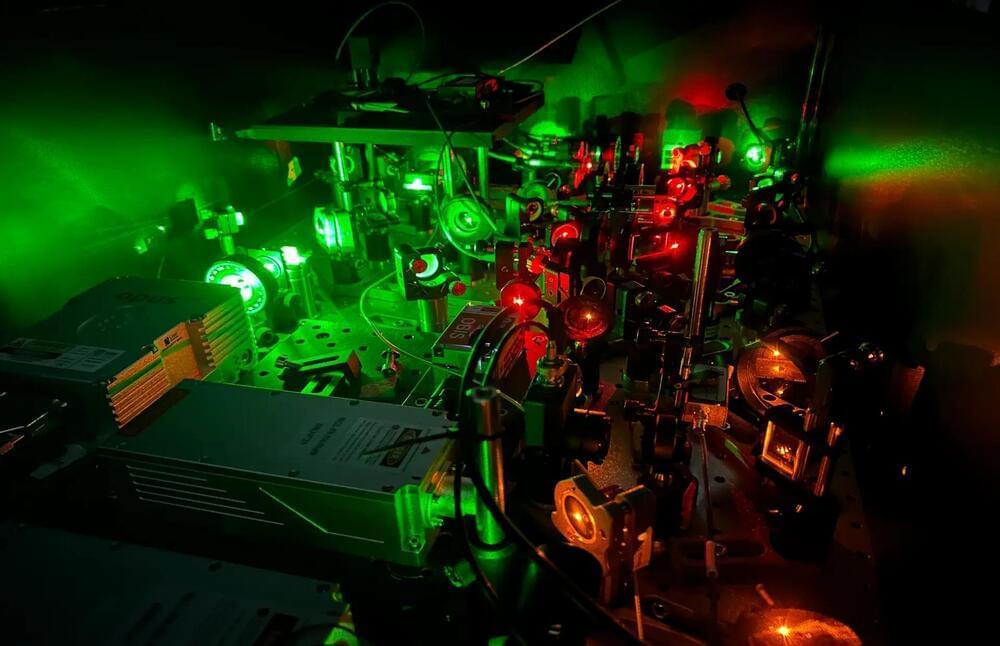Sep 4, 2024
The world’s fastest single-shot 2D imaging technique films ultrafast dynamics in flames
Posted by Saúl Morales Rodriguéz in categories: particle physics, space travel, sustainability
Candle flames and airplane engines produce tiny soot particles from polycyclic aromatic hydrocarbons (PAHs) as their precursors, both of which are harmful to humans and the environment. These carbon-based particles are also common in space, making up 10–12% of interstellar matter, and are becoming valuable for use in electronic devices and sustainable energy. However, the fingerprint signals of soot and PAHs have very short lifespans in flames—lasting only a few billionths to millionths of a second. This brief existence requires very fast cameras to capture their behavior in both space and time.
